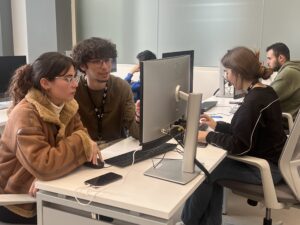Flat6Labs hosted its first ‘Start Smart’ webinar, to support startups by providing expert advice, on how to safeguard and plan for growth during the COVID-19 pandemic. The discussion took place between Chris Schroeder, a Global Investor, Internet & Media entrepreneur and CEO, and Hany Al-Sonbaty, Sawari Ventures & Flat6Labs Co-founder. Together, they took part in an insightful discussion, on how entrepreneurs can work on their startup survival plans, as well as how they can take off during this pandemic.
Here are some highlights from the discussion
Great companies that rely on human connectedness may fail
Schroeder shared that big businesses that rely on human connectedness, such as Uber, will be impacted heavily by the ongoing crisis. He shed light on businesses that have a great offering, but may not survive over the coming 18 months, as a result of the crisis. However, the companies that have a great service or offering that facilitates people’s lives, will continue to be relevant, even during the crisis. The most important thing is to safeguard the brand, adapt and have a forward-thinking approach to come out of the crisis.
Hold onto cash reserves
During difficult times, Schroeder stresses on that fact that startups need to hang onto their money. When going through a period of uncertainty, startups should not necessarily eye growth, but hang onto cash reserves. He went onto explain that founders need to concentrate on cutting down costs if they are not generating significant revenues. This will position them to be more capable of surviving and thriving after this period of time is over.
VC funds still want to invest
Many startups are struggling to raise capital. However, Schroeder pointed out that many VC funds have the money to invest, however, they are waiting to see who are the winners and the losers that will come out of the crisis. VC funds and investors want to know what entrepreneurs are thinking and how they are thinking, and are willing to “walk through walls” to thrive.
He urged for startups to be wary of venture capitalists who might not have their best interest at heart and cautions founders to avoid these types of investors at all costs. What they should keep in mind however is that most investors essentially want to perceive the founder’s willpower, their aptitude to adjust and process new data and changes that will have their business flourishing.
Shifting to continuously reflect on what entrepreneurs are learning and how they are thinking during this period, can help them develop their business moving forward and ask themselves:
- Do we have a good product or services that facilitates people’s lives? If so, how can we save it?
- What realities will prevail after the crisis? And how can we adapt to them?
- What’s the best way to shift our strategy and pivot with the crisis?
- What are some things that we know now, that can be done in different ways?
Going virtual is challenging
Due to the impact of COVID-19, companies have been forced to transfer their company cultures to digital platforms. Companies and their respective teams are now working in a completely virtual space, which means that culture, is difficult to instill and maintain. In this regard, Schroeder shares that to continue to push company culture forward, a very well-thought-out strategy is needed, that covers what is expected of teams, the method to carry it out and what communication tools are available to connect.
COVID-19 has shed light on how connected we really are
Schroeder shared that the crisis has shown the world, how connected it really is. Due to this, if companies and businesspeople were able to rally their resources earlier and share good lessons learned, then the realization that “we are all in it together” would have been more apparent.
“This moment underscores the impact of global connectedness,” shared Schroeder.
Schroeder assured entrepreneurs throughout the webinar that our current situation will hopefully improve and we will most likely witness various changes as a result of the crisis. For startups that do have products and services that make people’s lives easier and more efficient, these companies will unlikely fade as a result of the crisis. It is integral to plan and learn, to be able to prevail post crisis.




